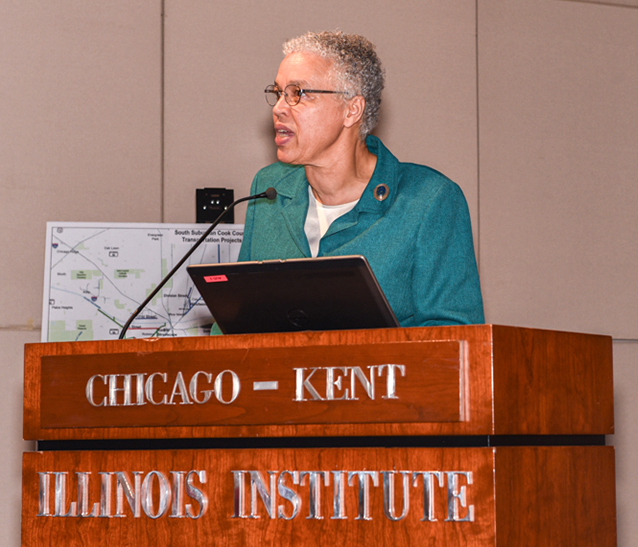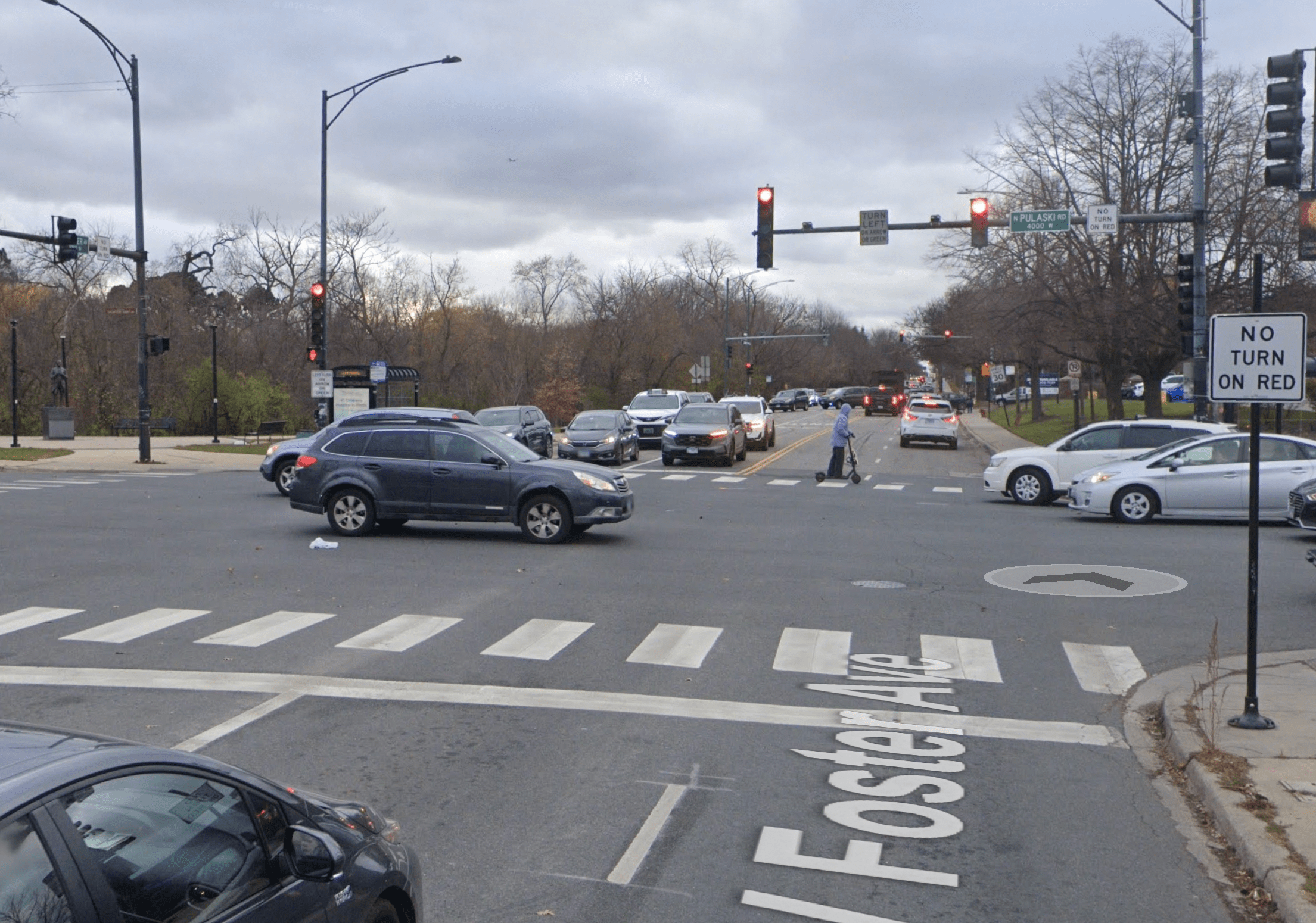
Last Wednesday the Active Transportation Alliance held its annual member meeting, handing out volunteer awards and electing a couple of new board members: recently retired Chicago Department or Transportation deputy commissioner Luann Hamilton and former Active Trans staffer Adolfo Hernandez. A major theme of the meeting was the proposal to increase service and lower fares on two South Side Metra routes, promoted by the commuter railroad, Cook County, and other local agencies and organizations.
While Chicago mayor Lori Lightfoot has generally been on the right page when it comes to sustainable transportation matters, this issue is the glaring exception. Lightfoot has stubbornly resisted the plan, arguing that more frequent and affordable Metra Electric and Rock Island District service would cannibalize CTA ridership.
It's a position that highlights the folly of inter-agency competition. It's also probably not a coincidence that the most visible proponent of the Metra plan is Lightfoot's former mayoral rival, Cook County board president Toni Preckwinkle. She discussed the initiative, along with other county transportation projects, as the featured speaker at the Active trans meeting. Here's a summary of Preckwinkle's remarks as prepared.
Preckwinkle began her talk, which she said would focus on racial equity, by highlighting a "stark fact." Chicago has the biggest life expectancy gap of the 50 largest U.S. cities. While Streeterville residents can expect to live to 90 on average, Englewood residents have a life expectancy of only 60 years. That's a staggering 30-year gap.
"Your zip code should not determine your life expectancy, and your race should not determine your access to opportunity," Preckwinkle said. "But far too often it does. Why?"
She began to address that question by discussing the difference between equality -- in which resources are distributed equally -- and equity -- where resources are focused on the individuals and communities that need them the most. "In reality, equal distribution of resources, and policies that seem fair on the surface, do not lead to equal outcomes," Preckwinkle said. "Why? Because the playing field is not level. In America, the playing field has never been level. If you are a woman, if you are Black, if you are Latinx, if you have a disability, if you speak another language, if you were born in another country — in other words, if you are most of the population of Cook County — the playing field has never been level."
Preckwinkle argued that elected officials have a moral responsibility to "close the opportunity gap, the wealth gap, the health gap — and we start by calling it what it really is: the race gap." She noted that improving transportation access is an overlooked strategy for bridging these gaps.
Connecting Cook County, the county's first long-range transportation plan in 75 years, was adopted in 2016. Preckwinkle asserted that equity is a priority of that document, reflected in how the Cook County Department of Transportation and Highways conducts studies, awards grants and designs infrastructure. "Because equity is a priority in the plan, engineers and designers consider who will benefit, and who will be burdened, when planning new projects."

Next Preckwinkle asked people to consider how transportation access affects the lives of Cook County residents on a daily basis. "How did you get to work today? Did you drive? How are the roads leading from your neighborhood to your office? Did you take public transit? How long was your walk to the train or bus stop? How long was your wait? Are there job opportunities in your neighborhood? If so, why? If not, why not?"
Preckwinkle noted that while downtown Chicago, the North Side, and northern Cook County are generally thriving economically, many communities on the South and West sides and the near-southern and near-western suburbs have been left behind. "We are one County, and the whole region suffers when communities don’t have the opportunity to thrive." She noted that South and West siders have to travel further to get to jobs, and these communities have seen less growth because of historic disinvestment.
In 2016 Cook County launched Invest in Cook, a transportation grant program to implement strategies from the Connecting Cook County plan. "So far we’ve awarded $23 million dollars to advance almost 100 projects," Preckwinkle said. "And I’m also proud to say that half of the Invest in Cook grants have gone to projects in low- and moderate-income communities, especially African American communities in the south suburbs."
Preckwinkle said that as part of efforts to level the playing field for the South Side and Southland, the county transportation department commissioned the South Cook County Mobility Study in 2018, looking at the challenges faced by commuters. "Armed with real data, we are now working closely with our regional transit partners on a concrete pilot plan to assist residents in the southern portion of our county with more frequent, affordable and accessible transportation options," she said, referring to the Metra proposal.
Despite the resistance from Lightfoot, whom Preckwinkle didn't mention in the speech, she said, "We’re committed to making the initial investment to make this three-year pilot plan happen. I’m confident we’ll get there."
"Cook County stands ready to lead and advance transportation projects that will improve our competitive advantage as well as the health, safety and welfare of our residents—and to always do so with an equity lens," Preckwinkle concluded. "Through this work, together we can level the playing field, to make Cook County an equitable place where everyone can thrive."
At the end of the meeting, the audience of about 150 was asked to sign Active Trans' petition in support of the Metra plan. Each time someone signed, a pin would drop on a map projected on a screen showing the residence of that person.
Click here to sign the petition for affordable, frequent South Side Metra service.




